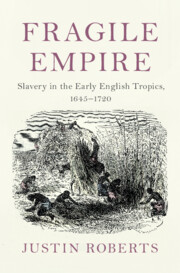Book contents
Epilogue
Published online by Cambridge University Press: 19 December 2024
Summary
The epilogue takes a broad and expansive view of the nature of the British empire in the eighteenth- and nineteenth-century tropics. It argues that the British largely abandoned the settlement of the tropics by Europeans by the eighteenth century, becoming more convinced that it was a dangerously unhealthy place. They maintained their hold on the tropics by relying on non-Europeans. The ratios of non-Europeans to Europeans in the tropical empire continued to grow. Ideas about racial differences hardened and became more fully and ardently articulated. They were interwoven with notions of environmental determinism. The British turned more fully to soldiers of African descent in the Caribbean and Sepoy armies in India to help defend the empire. The epilogue explores the large-scale rebellions that erupted against the empire in nineteenth-century India and in the Caribbean, arguing that internal resistance helped to end slavery and, ultimately, the empire. It also underscores the ways in which English colonization and trade across the tropical zone was linked and how the wealth accrued through tropical exploitation and slavery helped facilitate the rise of the British empire.
Keywords
Information
- Type
- Chapter
- Information
- Fragile EmpireSlavery in the Early English Tropics, 1645–1720, pp. 281 - 294Publisher: Cambridge University PressPrint publication year: 2025
